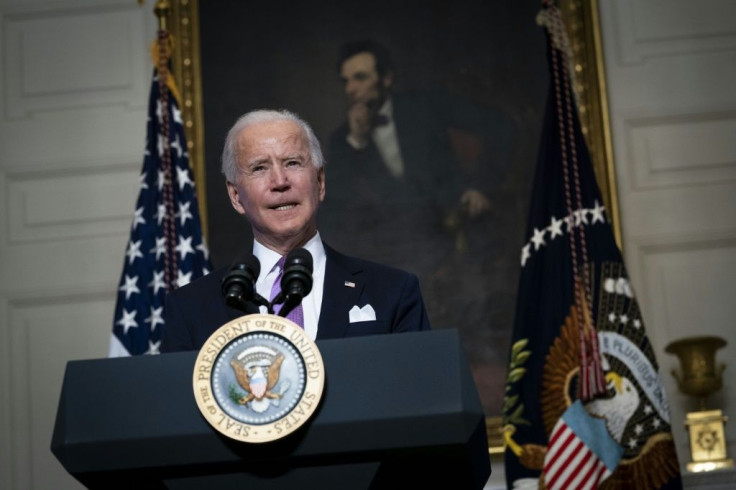How Does Biden’s Use Of Executive Orders Stack Up Against Other Presidents?
President Joe Biden is facing questions for his use of executive actions during his first few days in the White House. How does his use of the power of the office stack up against his predecessors?
Biden on Thursday signed executive orders related to healthcare, rolling back limits on Medicare, the Affordable Care Act and reproductive rights for women.
“It’s been a busy week, and I’ve signed executive orders tackling COVID-19, the economic and climate crises, as well as advancing racial equity,” he told reporters. “But, today, I’m about to sign two executive orders that are — basically, the best way to describe them, to undo the damage Trump has done.”
As of Friday, Biden has been in office for nine days. Including proclamations and memoranda, the president has put his signature on 36 separate executive actions, ranging from healthcare to the Keystone XL pipeline and the environment.
"Ease Up on the Executive Actions, Joe,” read Wednesday’s headline on the opinion page from The New York Times.
According to a count from the Associated Press, Former President Donald Trump in his four years in office signed 220 orders, Barack Obama over two terms signed 276, Bill Clinton in his eight years in office issued 364 orders and George W. Bush signed 291 during his two terms. President Franklin Roosevelt holds the record, with 3,721 orders issued during his four terms in office.
Speaking to C-SPAN in 2018, the late David Abshire, the president of the Center for the Study of the Presidency and Congress, said the Constitution affords the executive the right to act with expediency.
“If you start with the first case of [President George] Washington, when you have certain things you have to do, you have got to have a president that acts,” he said. “The Constitution left a lot of power with the president.”
According to The Heritage Foundation, presidential powers are broad, but not without limit.
“Scholars say Congress has some latitude in defining the procedures the president must follow to exercise executive authority,” the think tank explained. “Even so, the Constitution imposes some limits on the lawmakers’ ability to micromanage the president’s decision-making and enforcement of laws.”
Biden himself questioned the use of executive action during an October town hall on ABC.
“Well, if you can't get the votes, by executive order you're going to do something,” he said. “[There are] things you can't do by executive order, unless you're a dictator. We're a democracy. We need consensus.”
But a closer look from PolitiFact finds Biden referencing tax legislation, something the Constitution designates to Congress.
Defending his actions, Biden said during a signing ceremony for executive orders on Thursday that he was not legislating from the Oval Office.
“And again, I’m not initiating any new law, any new aspect of the law,” he said. “This is going back to what the situation was prior to the [previous] president’s executive orders.”
Like Biden, President Donald Trump spent much of his tenure working to undo the work of his predecessor, Barack Obama, through executive action that, among other things, pulled the country out of the nuclear deal with Iran and the Paris climate agreement.

© Copyright IBTimes 2025. All rights reserved.



















